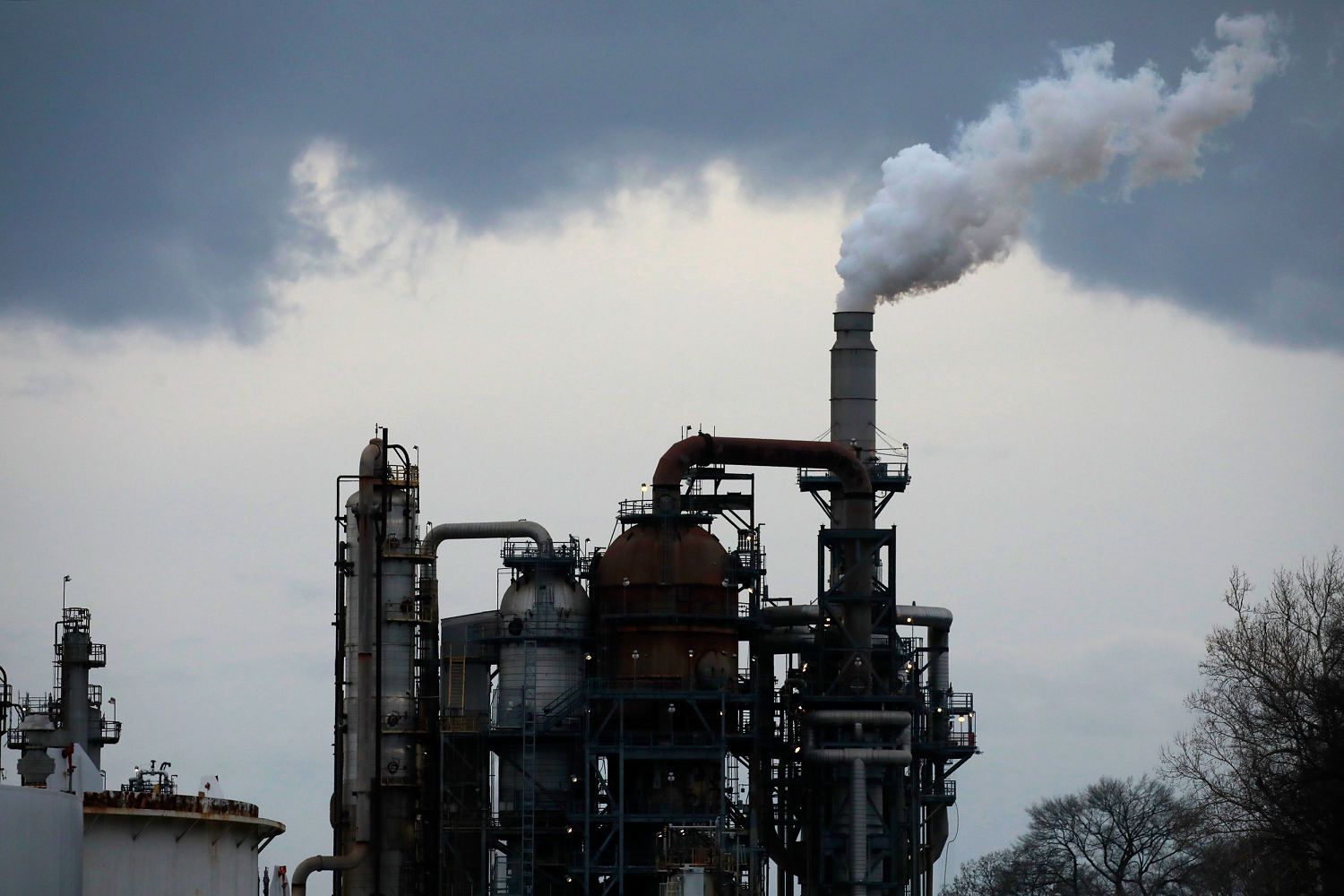
Some 50 oil and gas companies worldwide have pledged to shore up leaky methane systems by 2030, a move that could rapidly reduce emissions of the potent gas and forestall some climate change effects — if the companies live up to their word.
The pledge, which was announced at the United Nations Climate Change Conference in Dubai (COP28) by Sultan Ahmed Al Jaber on Saturday, calls for oil and gas companies to dramatically reduce methane leaks to “near zero” by 2030. Al Jaber, the conference’s president, is the United Arab Emirates’ special envoy for climate and the CEO of ADNOC, a state-owned oil and gas company.
The pledge includes ExxonMobil and Saudi Arabia’s Aramco, among the largest oil and gas producers in the world.
Several environmental nonprofits and intergovernmental organizations — including the Environmental Defense Fund and the International Energy Agency — have signed on to track the effort and use satellite technology to provide additional accountability measures.
Other environmental groups decried the new agreement, called the Oil and Gas Decarbonization Charter, as part of a greenwashing effort. More than 300 organizations signed on to an open letter criticizing the effort.
“Methane emissions and gas flaring are symptoms of a more than century-long legacy of wasteful, destructive practices that are routine in the oil and gas industry as it pursues massive profits without regard for the consequences,” the groups wrote. “The only safe and effective way to ‘clean up’ fossil fuel pollution is to phase out fossil fuels.”
Methane is a more potent greenhouse gas than carbon dioxide. Controlling methane, which has been rising in atmospheric concentration for decades, is seen as one of the easiest and cheapest ways to make an immediate impact on global greenhouse gas emissions. And many fossil fuel companies have a natural incentive to reduce leaks, which often cost them money as supply is lost.
“It’s not complicated technology. It’s mostly plumbing, simple — you know — tightening the screws, shutting off leaks, stopping the flaring, stopping the venting, which is just wasting gas, burning it off in the atmosphere and doing damage,” said John Kerry, the United States special presidential envoy for climate, in a briefing about the accountability measures behind the agreement, adding that methane has been responsible for about 30% of the planet’s warming. “It’s absolutely essential that we deal with methane.”
A 2019 United Nations Intergovernmental Panel on Climate Change report estimated that methane’s potential contribution to global warming is more than 80 times that of an equivalent amount of carbon dioxide when impacts are measured over 20 years. Methane, which is the primary component of natural gas, accounted for about 18% of all greenhouse gas emissions from the world’s energy supply, according to the latest IPCC report. Methane is also produced at landfills, in agriculture and in natural processes like decomposition.
Also on Saturday, the U.S. Environmental Protection Agency announced its final rule on methane pollution, which the agency says will reduce emissions from the U.S. oil and gas industry by about 80% over what could be expected without it. The rule will dictate how the oil and gas industry finds and fixes leaks, strengthening provisions about flaring and enhancing emissions standards for pumps.
A study published this summer in Environmental Research Letters suggests that leaky methane can be just as bad for global warming as coal, which illustrates why world leaders are so animated about the issue.
Fred Krupp, president of the Environmental Defense Fund, said the oil and gas companies’ agreement could be the most helpful environmental action of his career if the companies hold to their commitments.
“We need to make sure the oil companies deliver, we need to hold them accountable,” Krupp said in an interview. “Many promises have been made at COPs that have not been kept.”
Krupp said EDF analysis suggests that about 2-3% of the natural gas removed from the ground is leaked into the air because of incomplete combustion during flaring, leaky compressor seals or through venting valves. The agreement calls to limit that leakage to near zero, which is defined as .2%, Krupp said.
“Every piece of equipment, every component, can leak methane along the supply chain,” said Arvind Ravikumar, an associate professor at the University of Texas at Austin and the co-director of its Energy Emissions Modeling and Data Lab. “The only way to know it is to go look for it.”
Ravikumar, who was not involved in either Saturday announcement, said about 10% of leaks in the oil and gas supply chain create more than 50% of all methane emissions.
“If you want to address methane emissions, find these super emitters and fix them,” Ravikumar said. “There’s the economic interest associated in stopping leaks.”
Ravikumar said many publicly traded oil and gas companies are under public pressure to reduce leaks, but that an international agreement is essential to spur private or national companies to take similar action.
EDF is planning to launch a satellite next year that can detect methane leaks. Bloomberg Philanthropies, which coordinates the charitable giving of former New York Mayor Mike Bloomberg, has committed $40 million to create tools to track methane leaks and expand data tracking and coordination among organizations focused on accountability.
Krupp said the companies will have to report their emissions data for third-party verification and that the organizations monitoring this effort, including EDF, should be able to ensure if they’re following through.
